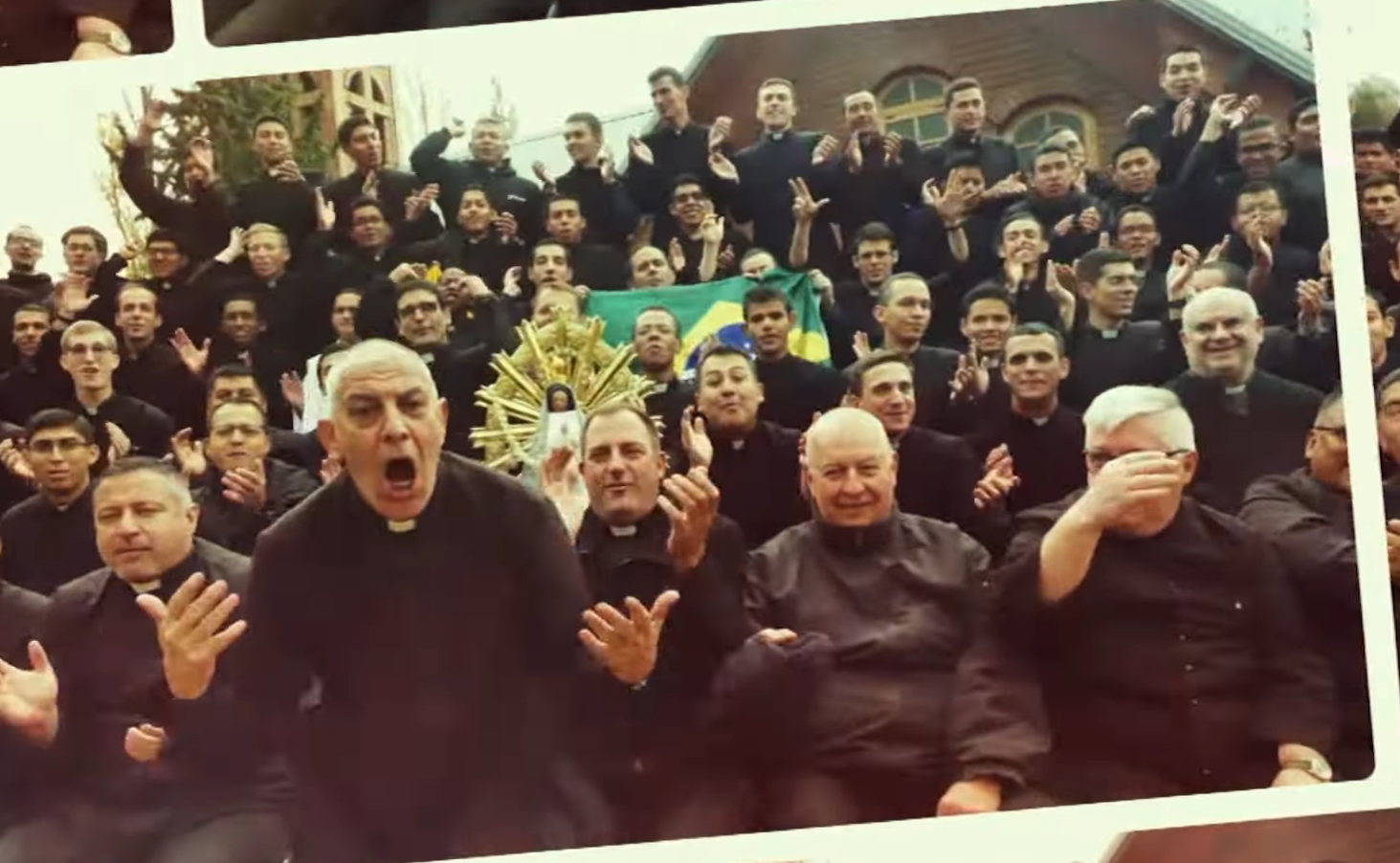One of the most frequent strategies of the Institute of the Incarnate Word (IVE) is to appropriate the achievements of its members and, at the same time, dissociate itself from their failures. When a priest or religious does a positive work, the Institute boasts of it as if it were irrefutable proof of the goodness of his charism and his system of formation. On the other hand, when scandals or serious falls appear, the official discourse insists that they are personal weaknesses, individual sins, without any connection to the institution.
(more…)Tag: Characteristics of sects
-

Father Dwight Longenecker’s criteria for whether they are a sectarian group
Father Dwight Longenecker has been a fundamentalist Protestant pastor, an evangelical of the charismatic type, an Episcopalian, an Anglican clergyman and for many years he has been a Catholic priest, chaplain at a Catholic university and a firm defender of the Catholic magisterium.
(more…) -

“These people don’t change their minds…”
Article based on a comment left by a reader.
In 1987 St. John Paul II visited the city of Mendoza (Argentina). And there the people of the Incarnate Word went. The city of Mendoza is located about 3 hours from San Rafael, the founding place of the Institute of the Incarnate Word.
(more…) -

A statue, a lie: the IVE quietly prepares its rewriting of history
In the circles of the Institute of the Incarnate Word (IVE), it has emerged that a statue of St. John Paul II dressed in the chasuble of the institute itself has been manufactured and is destined to be installed soon in its church in Manresa, Spain.
(more…) -

Italian Bishops’ Conference: “Spiritual abuse; elements of recognition and context”
Abuse in the ecclesial context is always spiritual
INTRODUCTION
The abuses of power, conscience and spirituality represent a deep wound in the Church not only for the people who suffer them, but also for the communities and institutions in which they take place. These are complex dynamics that are intertwined with trust, the role of authority and human vulnerability; they often happen in areas where relationships should be a space for growth and protection. Understanding these phenomena means going beyond appearances, grasping the systemic roots that make them possible and the devastating consequences they produce in the lives of the victims, both personally and spiritually.
(more…) -

The Third Order of the Institute of the Incarnate Word and the rejection of parents when their children “go out”
The Third Order of the Institute of the Incarnate Word (IVE) brings together lay people who follow a rather diffuse spirituality and without a clearly defined hierarchy. Many of these lay people are fathers and mothers of priests and religious of both the IVE and the Servants of the Lord and of the Virgin of Matará (SSVM). In fact, there is almost an automatic enrollment for the fathers and mothers of members of the IVE in this Third Order. Unlike other more traditional Third Orders, there seems to be no formal register of members or common organizational processes, such as the election of presidents or secretaries. This lack of structure is another characteristic of the mamarrachismo typical of buelismo.
(more…) -

Victims of spiritual abuse from religious congregations: why do they prefer anonymity?
Leaving a cult is not simply moving away from a group: it is, in many cases, rebuilding oneself from scratch. Many victims of spiritual, psychological or even physical abuse by sectarian groups choose not to come forward publicly. They are often kept anonymous, and this should not be interpreted as cowardice, but as part of a deep and painful process of healing. Here we explore the most frequent reasons behind this decision.
1. Shame and internalized guilt
Cults are experts in emotional manipulation. One of their most effective tactics is to make the victim feel that what they are experiencing is their fault. Even after leaving, many people feel ashamed of “having fallen,” preferring to keep silent to avoid external judgment.
(more…) -

Article by 3cat.cat (Spain): “This is how the IVE congregation acts, accused of manipulating girls in Vic and Girona: ‘If necessary, escape from home’”
After years of accumulating complaints, Pope Francis has removed the leadership of the congregation, founded 40 years ago by a man convicted of sexual abuseMarta Freixanet/Ferran Moreno (16/01/2025 – Updated 17/04/2025)
“The message didn’t say anything, just a location.” And yet, Adriana was clear: her sister had gotten into trouble. He did not hesitate and took the first flight to come and help him. He traveled from the United States to Manresa, a place he had never heard of. The surprise was even greater when he saw that the address was from the parish of La Merced de Manresa .
(more…) -

What can the Vatican do about the Institute of the Incarnate Word (IVE)?
After six pontifical interventions, dissolution seems inevitable
🔶 Introduction
The Institute of the Incarnate Word (IVE), founded in Argentina in 1984, has expanded rapidly throughout the world. However, behind this façade of missionary dynamism, numerous testimonies denounce abuses of power, spiritual manipulation, doctrinal rigidity and a sectarian structure that is difficult to reform.
The most striking fact: the Holy See has already appointed six pontifical commissioners to intervene the institute. None of them managed to bring about structural change.
(more…)
What real alternatives are left now for the Vatican?

